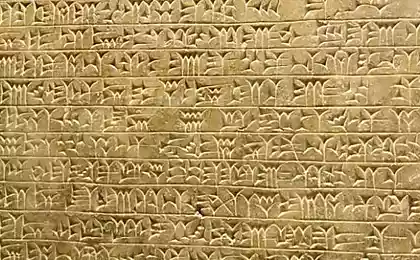327
Dead Languages - Top 10
 Many people know that languages are divided into living and dead. A child acquires a living language, adopting it from his parents, and passing it on to his children. A dead language is so called because it is not transmitted from one generation to the next. However, just because a language is dead does not mean that it is not used or lost, although it can happen. Considering the top, we pay attention to those whose use ended for various reasons. Often, due to the loss of meaning of use, there are no speakers of these dead languages, nor even documents on them.
Many people know that languages are divided into living and dead. A child acquires a living language, adopting it from his parents, and passing it on to his children. A dead language is so called because it is not transmitted from one generation to the next. However, just because a language is dead does not mean that it is not used or lost, although it can happen. Considering the top, we pay attention to those whose use ended for various reasons. Often, due to the loss of meaning of use, there are no speakers of these dead languages, nor even documents on them. 
1. Tamboran
There is a tragic story about this dead language. Used for more than 1,000 years by the population of southern Indonesia was forgotten in an instant when the Tabora volcano in 1815 destroyed almost all speakers of this language as a result of a powerful volcanic eruption.
2. Deseret
This language was coined with the U.S. Mormons, who responded to expulsion from various parts of the U.S. When they moved to a new place, they decided that they would have their own language. It was even invented and published new books, but given that the provision of each new textbooks needed very large funds, it was rejected as economically unprofitable.
3. Carnegie's Simplified Language
At the beginning of the 20th century, tycoon Andrew Carnegie, having received the go-ahead from US President Roosevelt, decided to introduce a simplified version of English into schools. Having simplified in words everything he considered difficult, he proposed it for teaching in schools. But, after a lot of complaints about this new spelling, the Supreme Court banned it and 14 years after it began, it was abandoned.
4. The Language of Benjamin Franklin
Another representative of dead languages invented artificially. For some, including political reasons, a famous man invented a new alphabet, or rather introduced some innovations in English. After several schools decided to introduce it into education, and even some results were visible, a revolution broke out and everyone forgot about the language. And they learned about him only a hundred years later with a careful study of Franklin's biography. For this, his portrait was placed on the “hundredfold”, a joke.
5. Solresole
This language was invented by Frenchman Jean François Sudre in early 19th century France to teach the deaf as an alternative to sign language, the language was based on the names of the seven notes, but was much broader as a system of both gestures and singing and writing, and speech and even painting and flags. But it lasted until the end of the same century and was removed as ineffective.
6. Bernard Shaw's language
The famous writer from Great Britain created not only masterpieces of literature, but also his own language. He worked hard to not only create a new alphabet, but to print a book in a new language. Several schools have even tried to study it. But, according to most, this language only confused the disciples and he died, never becoming more or less known.
7. Language for the Deaf Islands of Martha's Vineyard
The language originated on the island of Martha's Vineyard in the United States after a couple of hundred years there were born people with deafness. Most likely, this was because of the isolation of the community, many married close relatives. Residents invented their own language for communication and successfully used it until the beginning of the twentieth century. After that, new people began to come to the island, incest ceased, and deafness began to manifest itself less and less. With the disappearance of the problem, the language gradually disappeared, and by the 80s of the last century only a small group of people knew it.
8. Zaterland Frisian
Being a direct competitor, Frisian came into conflict with German, and it was replaced by a more fortunate. The church played a decisive role in his fate when, due to the redistribution of its borders, the Germans began to create mixed families with Frisians. Existed from the 12th century to the present day, now it is used only in one small town of Zaterland, and only on a household level.
9. Azeri
It existed until the seventeenth century on the territory of modern Azerbaijan. It was not even a language, but a dialect that united several dialects of the inhabitants of the specified territory. The decline of the language occurred when Persia took possession of the city in which it was used, when everyone began to switch to Turkish-Azerbaijani.
10. Shuadit
This language was formed due to the religious unfreedom of Jews in France in the 10-11 centuries, when they had to live in their separate communities, and use this language in communication with each other. However, with the advent of freedom of religion, speakers dispersed to different places, and the language was doomed to die when narrow communication with each other ceased to be a privilege.
Moles — an indicator of the predisposition of women to breast cancer
The most extraordinary judicial sentences in modern history























